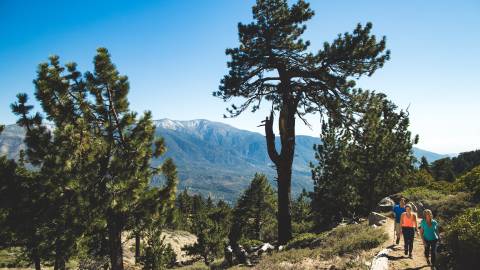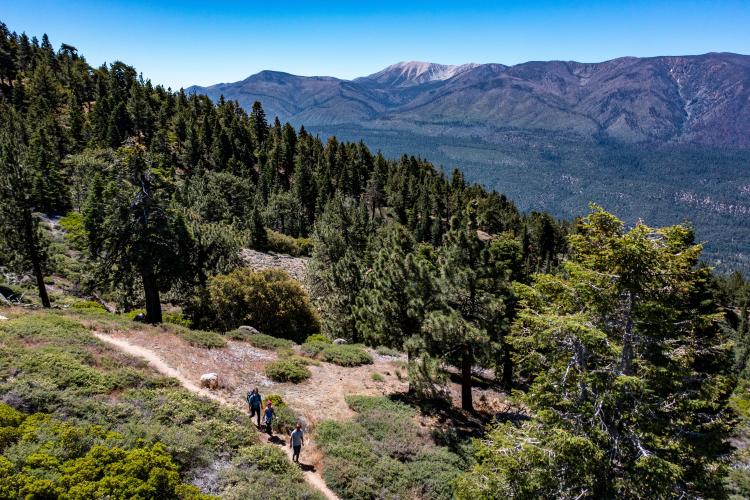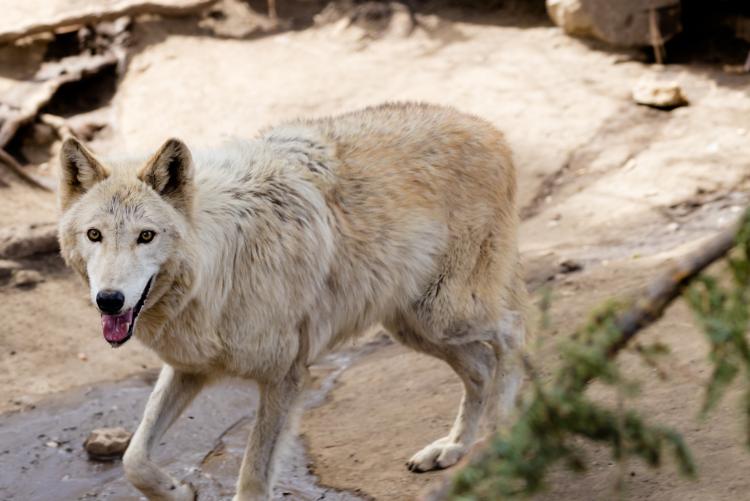
Be An Eco-Ally in Big Bear Lake
Posted: 03/15/24
Big Bear Lake ecotourism connects our visitors to nature and brings awareness of the impacts humans have on the natural environment. Become an eco-ally on your next visit to Big Bear!
Whether you're in your home town or traveling abroad, your presence has an impact. The question is, is your impact positive or negative?
Principles of Ecotourism
- Minimize impact - Stay on designated trails and do not leave trash along routes. Take initiative and pick up any trash you find along your route.
- Build environmental and cultural awareness and respect - Give wildlife their space. Do not collect or remove plants, animals, rocks, logs, etc.
- Provide positive experiences for both visitors and hosts - Be courteous to others you encounter. Keep dogs on a leash at all times.
- Provide direct financial benefits for conservation - Read further for donation opportunities.
- Provide financial benefits and empowerment for local people - Buy and support local 'Mom & Pop' shops.
- Raise sensitivity to host area’s political, environmental, and social climate - Our world is composed of unique people from all walks of life.

Ecotourism is responsible travel to natural areas that conserves the environment and improves the well-being of local people. Ecotourism has a positive impact on both natural areas and the local community. The International Ecotourism Society
Ecotourism Activities
- Head to the Visitor Center for trail maps and brochures on recreation areas in Big Bear Lake. Top Trails like Woodland Interpretive Trail and Champion Lodgepole Pine Trail have brochures about their environment and history.
- The Alpine Pedal Path includes signage along the paved route with information on Big Bear's geography, wildlife, and more.
- Conservation areas like Baldwin Lake Ecological Reserve and The Stanfield Marsh Wildlife & Waterfowl Preserve offer education on Big Bear's diverse ecosystems and what it takes to sustain them.
- Gold Fever Trail in Holcomb Valley highlights the rich gold mining history of Big Bear.

Ecotourism Organizations
Big Bear Alpine Zoo - As a rehabilitation center for sick and injured wildlife, the Zoo leads the wildlife conservation effort in the valley. While a majority of their intake animals are released to their natural environment, many cannot be released and remain at the facility as permanent residents. Successful wildlife conservation is a community wide effort. The Zoo reminds everyone to:
- NEVER feed wildlife!
- Don't be too quick to 'rescue' an orphaned animal; often the mother is out foraging for food. Hand raising any wild animal deprives it of learning important behaviors from it's mother and siblings.
- Adopt An Animal or become a Member of the Zoo
Southern California Mountains Foundation - The Mountains Foundation is a non-profit supporting conservation initiatives focused on stewardship of the environment. Explore the Discovery Center and join in free activities each weekend.
- Adopt A Trail with SCMF
- Explore Mountains Foundation Programs
The Big Bear Municipal Water District - not to be confused with the Dept. of Water & Power - is responsible for the health of Big Bear Lake ecosystems and management of recreational activity. Help them protect our fragile lake ecosystem when you:
Related Partners